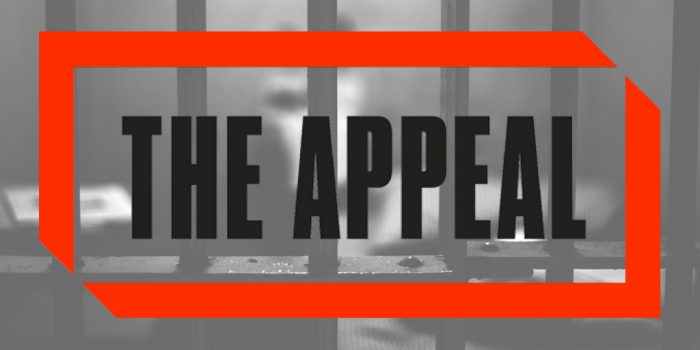
The Appeal doesn’t really go for simple stories. Take one example: SESTA/FOSTA is legislation signed by President Trump aimed at helping to prevent sex trafficking. It held websites like Backpage and Craigslist accountable for any illegal activity occurring through the site, leading to a crackdown of online illegal sex work and the end of Craigslist’s “Personals” section. It was supposed to be a step forward. But one of the repercussions, as Melissa Gira Grant showed through her reporting, is that sex workers were forced offline and onto the street, less able to screen clients for potential danger.
“We covered that over and over again,” said Sarah Leonard, executive editor at The Appeal, which has featured regular coverage of the bill since April. “That ended up turning what had been a set of legislation that everyone just agreed on into something that is described, everywhere, as controversial.”
That’s part of The Appeal’s mission: to complicate existing narratives and bring to light new ones. Whereas other nonprofit journalism sites like The Marshall Project focus on all aspects of the criminal justice system, The Appeal focuses on local prosecutors and the policy environment in which they operate. (It also covers policing practices and issues around incarceration.)
“Huge effects on average people — like whether they pay a fine or go to jail — were in the hands of a prosecutor,” Leonard told me. “There’s this vast undercovered swath of the criminal justice system, largely at the county level. State and county level facilities hold 87 percent of America’s incarcerated people. That’s where incarceration is happening, and that’s what doesn’t get covered.”
Leonard helped lead The Appeal’s rebrand from In Justice Today — a Medium publication from the Fair Punishment Project where articles by legal experts discussed criminal justice issues. In Justice Today was largely aimed at writers, lawyers, and academics who were already knowledgeable on the topic. One of the big challenges Leonard faced was making that discussion more accessible. The site was moved from Medium to WordPress and given a makeover, with a new prerogative: Bring to light the messy bits of the legal system that don’t get covered, and make it accessible to a wider national audience as well as legal experts.
More and more people are becoming interested in the criminal justice system, Leonard said: “This is a door that’s wide open for people to come in.”
Getting the right people for this sort of mission was tricky: The reporters needed to be experts in their field, but also writers who could translate complicated issues and make the stories real for readers. Senior editor Aviva Shen was one piece of that puzzle. Shen, previously an editor in the “managerial scheme” at ThinkProgress, had started freelancing in New Orleans: “This time I felt like I was actually embedded in a community, and started to see things through my own eyes instead of on Twitter.” She became deeply invested in looking at criminal justice on the local level, drawing out the kinds of stories that national news outlets don’t have the time for and local outlets don’t always have the resources to cover in depth. Writing for The Appeal seemed a natural next step.
Take, for example, her material witness story. The New Orleans district attorney’s office has a longstanding practice of drawing up documents that look like subpoenas to make people appear privately to the DA, not to the court, and arresting witnesses to ensure their cooperation. Shen reported on how witnesses were being forced to testify under threat of jail time, including one domestic violence victim who was held on a bond 20 times higher than that of their alleged abuser. The issue had been covered before, but Shen’s story tied in new research showing the frequency with which the DA’s office was still arrested witnesses. “This practice, that was not really getting very much attention, is really hurting people, and specifically the very people who these prosecutors are claiming to represent and champion.”
The Appeal’s editorial staff of about 20 works with contributors around the country remotely. It has the luxury of the relatively deep (and dependable) pockets of a few dedicated donors like Open Philanthropy Project, Vital Projects Fund, and Patty Quillin, with donations channeled through fiscal sponsor Tides. A lot of effort is also put into creating accessible resources for readers, including explainers for the more confusing pieces of the legal system. Brady Doctrine violations, bail reform, and more are all explained in detail as a resource to those who didn’t spend three years in law school. In addition to longform journalism, the site publishes a podcast and four newsletters that break down news by region.
The greatest goal for The Appeal isn’t necessarily advocacy, but inviting people other than legal experts in, and getting a bit more nuance into the conversation. “It’s about pushing the criminal justice conversation forward, and pushing the edges of it,” said Leonard.
Since the relaunch, the nonprofit publication has seen substantial growth in its social media followings, which Leonard sees as a positive sign. “We’re often interested in the ways society tries to solve genuine problems with just more punishment and incarceration,” she said. “And we’re interested in looking at, well, does that really work? Is that actually producing the sort of society people want to live in? How do we report on these issues in a more critical way?”